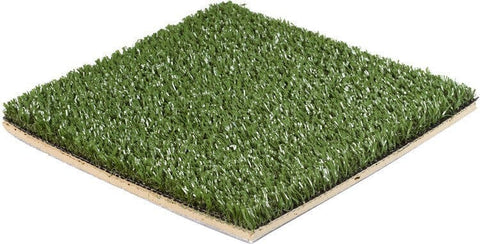Delve Into the Environmental Perks of Opting for Synthetic Grass Solutions
The fostering of synthetic grass services offers an engaging opportunity to attend to pressing ecological obstacles. By significantly lowering water usage and reducing the application of harmful chemicals, these alternatives not just advertise sustainable landscaping however additionally protect regional ecological communities.
Water Conservation Perks
One of the most substantial benefits of synthetic grass is its capability to conserve water. In comparison, fabricated lawn does not require watering, substantially decreasing the general demand for water sources.
By getting rid of the need for normal watering, synthetic turf adds to lasting landscape practices and assists mitigate the environmental influence of too much water consumption. Moreover, the conservation of water prolongs to the decrease of drainage, which can result in dirt disintegration and river pollution.
Furthermore, the installation of synthetic grass allows municipalities and homeowners to designate water sources more efficiently, concentrating on important uses such as drinking water and agriculture. The change towards man-made grass not only promotes liable water use yet additionally aligns with more comprehensive ecological objectives targeted at maintaining natural sources.
As areas progressively focus on sustainability, the water conservation advantages of fabricated grass offer an engaging instance for its fostering in domestic and business landscaping tasks.
Reduced Chemical Usage
The change to man-made turf significantly decreases the dependence on chemical treatments typically made use of in all-natural lawn maintenance. Conventional turf management typically entails the application of herbicides, plant foods, and pesticides to advertise growth and control insects. These chemicals can present threats to human health and wellness, neighborhood wildlife, and the setting, contributing to dirt and water contamination.
In contrast, synthetic grass eliminates the demand for these hazardous materials. When installed, it calls for marginal upkeep, mainly being composed of normal cleaning and seldom infill replenishment. This reduction in chemical usage not just benefits the instant setting but additionally contributes to wider ecological security. By minimizing the launch of artificial compounds right into the ecological community, synthetic grass advertises much healthier soil and water supply.
In addition, the lack of chemical drainage associated with synthetic grass installments aids safeguard local waterways from pollution, sustaining water life and preserving biodiversity. Phoenix turf companies. As communities increasingly prioritize sustainable techniques, selecting synthetic grass provides a sensible remedy that lines up with environmental conservation goals. Via this change, homeowner can take pleasure in rich eco-friendly areas without jeopardizing ecological health, leading the way for an extra sustainable future
Lower Carbon Footprint

Moreover, the setup of synthetic grass can cause significant water conservation. Natural lawns call for significant amounts of water for watering, which not just includes in the carbon impact related to water extraction and treatment but likewise stress neighborhood water sources. On the other hand, synthetic grass needs minimal maintenance, needing no watering, therefore considerably lowering water use and its connected power prices.
Additionally, the longevity of synthetic grass adds to its decreased carbon effect. With a life expectancy of approximately 15 years or even more, the demand for constant substitutes is lessened, causing much less waste and reduced power consumption in manufacturing and dealing with standard grass alternatives. In general, synthetic grass provides a lasting option for environmentally conscious landscaping.
Habitat Conservation
Environment conservation is a critical consideration in the argument over landscape design options, especially when comparing synthetic grass to natural grass. Natural grass yards usually require extensive upkeep, consisting of using pesticides, plant foods, and herbicides, which can adversely influence regional ecosystems. These chemicals can seep into the dirt and waterways, damaging native vegetation and animals and interrupting local environments.
Artificial turf eliminates the need for damaging chemicals, consequently securing neighboring wild animals and preserving the stability of surrounding communities. The installment of artificial lawn can lead to the conversion of previous grass areas into more biodiverse landscapes, such as pollinator gardens or indigenous plant areas, which can support regional wildlife.
Inevitably, the transition to fabricated turf not only preserves water and reduces upkeep efforts but also fosters an extra unified partnership in between Click Here human tasks and the all-natural environment, promoting habitat preservation in the procedure.
Long-Term Sustainability
Long-term sustainability is a critical consider examining the advantages of synthetic turf over conventional turf yards. Among the most considerable benefits of artificial lawn is its durability; it can last approximately 15-20 years with very little maintenance, whereas natural yard requires constant reseeding and replacement. This durability decreases the need for continuous sources, such as water, fertilizers, and chemicals, which are necessary for preserving a healthy yard yard.
In addition, fabricated lawn adds to a reduction in carbon discharges connected with lawn care equipment. Standard lawns usually call for gas-powered lawn mowers, leaners, and blowers, websites all of which add to air contamination. Phoenix turf companies. On the other hand, fabricated grass gets rid of the demand for such devices, promoting a cleaner atmosphere
In addition, the manufacturing of fabricated grass significantly makes use of recycled materials, enhancing its sustainability account. As manufacturers take on environment-friendly techniques, the ecological impact of synthetic grass proceeds to decrease.

Conclusion
The fostering of synthetic grass options presents considerable ecological advantages, including significant water conservation, decreased reliance on unsafe chemicals, and a reduced carbon impact. Fabricated turf aids in protecting natural environments by minimizing land disruption and promoting long-lasting sustainability with the usage of sturdy products. Collectively, these factors emphasize the capacity of man-made turf to add positively to environmental wellness and supply a feasible option to conventional landscape design methods in a progressively resource-conscious world.
In comparison, synthetic turf does not require watering, substantially decreasing the total demand for water sources. By decreasing the launch of synthetic compounds right into the ecological community, man-made turf advertises much go to my site healthier dirt and water systems.
In addition, the installment of fabricated lawn can result in significant water preservation. In contrast, man-made lawn needs marginal maintenance, needing no watering, thereby substantially reducing water usage and its linked energy expenses.
